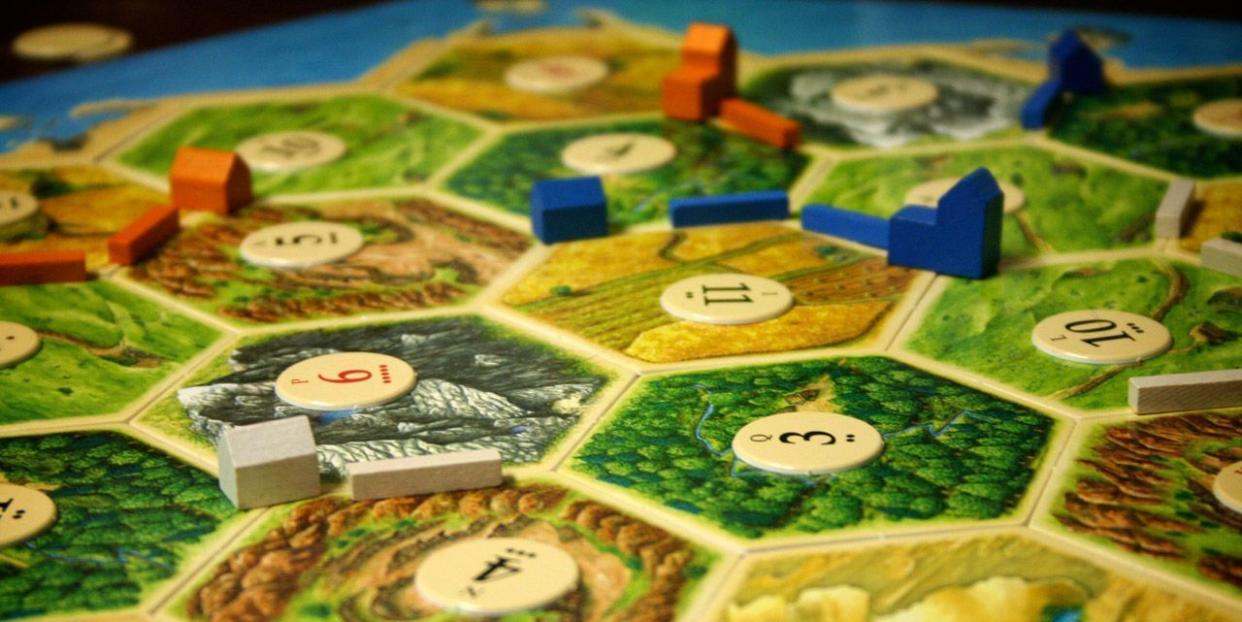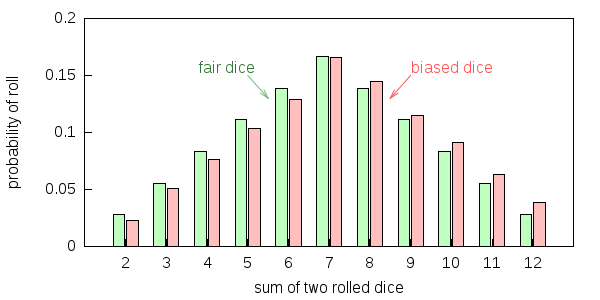There's an Easy Way to Cheat at 'Settlers of Catan' and Never Get Caught

If you’ve ever played a game of Catan, you’ve probably experienced the frustration of getting a bad roll multiple turns in a row. All you need is one brick to finish that road but the dice just refuse to give it to you. It’s the kind of experience that can lead some people to wish for a loaded die. According to Mike Izbicki, it’s actually possible to create loaded dice in a way that’s scientifically undetectable.
The actual method to create the loaded die is pretty simple. All you’ll need to do is soak the wooden dice in water overnight, and you can slightly increase the weight of one side. With this method, you’ll get a slight advantage over the course of a game.

But Settlers of Catan is a multiplayer game, and the other players might get suspicious when you roll your third 12. So can they prove you’re cheating? Short of directly confronting you, they have to use the tools of the scientific method, but as Izbicki shows, those tools are inadequate.
Here’s how it works: According to Izbicki’s testing, your loaded dice will come up sixes about five percent more often than with fair dice. Over the course of a standard game, that means about three more sixes than you’d expect. Is this enough to prove the dice are loaded?
The most common method in science for determining whether a hypothesis is correct is calculating p-values. A p-value is the probability that a certain result could have happened by chance. In our example, what’s the probability that a fair die rolls an extra 3 sixes over the course of a typical game?
In essence, the p-value is the probability of a false positive. Proving that a result is genuine means ensuring that false positives are extremely unlikely. The best way to get a low p-value is to get a lot of data, but a game of Catan doesn’t give players that opportunity. Crunching the numbers, an extra 3 sixes over the course of a game of Catan gives a p-value of 0.265. That means there’s a 26.5 percent chance those three extra sixes are a false positive.
That’s way too big of a chance for any reasonable scientist to conclude that you’re cheating. In order to have confidence that the dice are loaded, that scientist would need to play many more games: about five more, according to Izbicki’s calculations. So as long as you play fewer than six games with your scientist friends, they’ll never be able to prove you’re cheating.
Not that you should, or anything.
Source: Mike Izbicki
You Might Also Like

